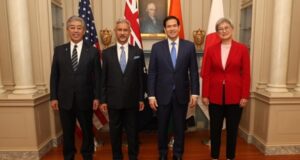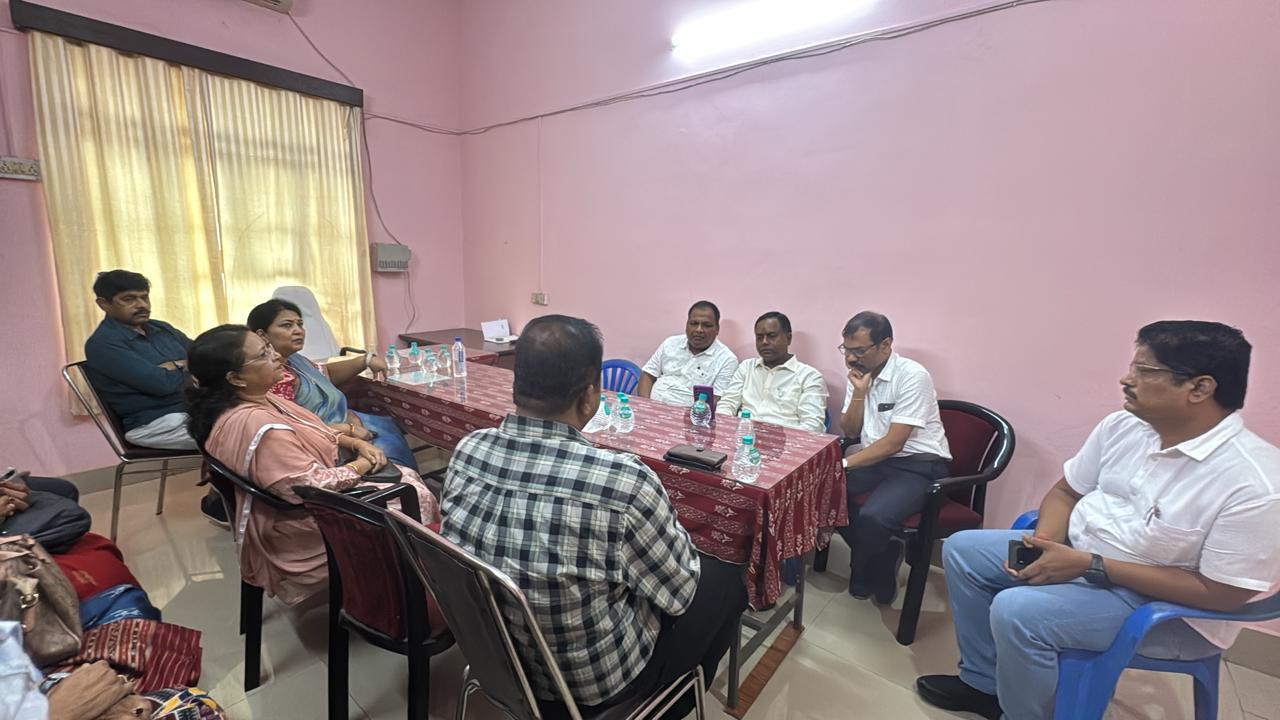China:26/6/25:India has refused to sign a joint declaration at the Shanghai Cooperation Organisation (SCO) Defence Ministers’ meeting in Qingdao, China. Official sources said that India is not satisfied with the language of the joint document, and there was no mention of cross-border terrorist activities.
It is believed that Defence Minister Rajnath Singh’s refusal to endorse the document resulted in the conclave ending without a joint communique. As per the SCO Charter, the grouping takes decisions by agreement without a vote, and they are considered to be adopted if no member state raises objections.
Earlier, Defence Minister Rajnath Singh called for united global action against terrorism, radicalisation, and extremism, citing them as the biggest threats to regional peace and trust. Addressing the Ministers’ meeting today, Mr Singh said, peace and prosperity cannot co-exist with terrorism. Referring to the heinous Pahalgam terror attack that killed 26 civilians, including a Nepali national, Mr Singh said India exercised its right to self-defence through Operation Sindoor to dismantle cross-border terror infrastructure. He said India has shown that epicentres of terrorism are no longer safe and the country will not hesitate to target them.
The Defence Minister urged SCO nations to reject double standards and hold terror sponsors accountable. Mr Singh said that some countries use cross-border terrorism as an instrument of policy and provide shelter to terrorists. He stressed that there should be no place for such double standards and SCO should not hesitate to criticise such nations. He emphasized that those who sponsor, nurture, and utilize terrorism for their narrow and selfish ends must bear the consequences.
Highlighting SCO’s crucial role in the current uncertain geopolitical scenario, Defence Minister stated that the member countries contribute around 30 per cent of the global GDP, and about 40 percent of the world’s population resides in them. Mr Singh described the creation of a safe, secure,e and stable region as a collective stake, which can contribute towards progress and improvement of people’s lives.
Highlighting the challenges posed by the changing dynamics of transnational terrorism and cyber-attacks to hybrid warfare, Mr Singh pointed towards countering the technologies used by terrorists including drones for cross-border smuggling of weapons and drugs.
Defence Minister Rajnath Singh also advocated for reforming multilateralism to build cooperation and fostering dialogue and collaboration among nations to prevent conflict. The Minister stressed that no country can manage alone and the very idea of the global order, or multilateralism, is the assumption that nations have to work with each other for their mutual and collective benefit. He also congratulated Belarus on joining the SCO family as a new member.
The Shanghai Cooperation Organisation is an intergovernmental body established in 2001. India became a full member in 2017. Current SCO members include Kazakhstan, China, Kyrgyzstan, Pakistan, Russia, Tajikistan, Uzbekistan, Iran, Belarus, and India. China holds the Chair of the SCO for 2025 under the theme “Upholding the Shanghai Spirit: SCO on the Move.”
 Odisha news today, Latest Oriya News Bhubaneswar Online Odia news Portal
Odisha news today, Latest Oriya News Bhubaneswar Online Odia news Portal




